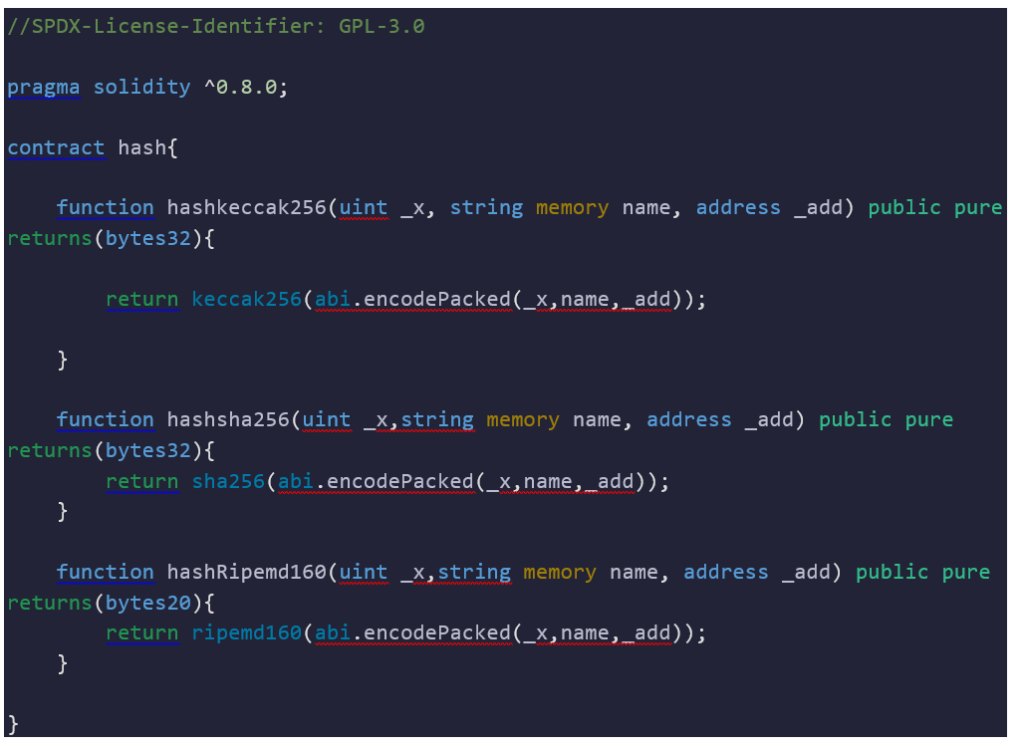Solidity Programming Language – Inbuilt Cryptographic Hash Function – Keccak256, Sha256, Ripemd160

In Solidity, a programming language commonly used for writing smart contracts on the Ethereum blockchain, you can use cryptographic hash functions like Keccak256, SHA256, and RIPEMD160. These functions are typically used for various purposes, including creating unique identifiers, verifying data integrity, and generating hash-based signatures.
Keccak256: This is the hashing function used in Ethereum. You can use it by simply calling keccak256().

SHA256: Solidity does not have a built-in SHA256 function, but you can easily integrate it using libraries or by leveraging external contracts that provide this functionality.

RIPEMD160: Similar to SHA256, there’s no built-in RIPEMD160 function in Solidity, but you can use external libraries or contracts that provide this functionality.

Remember to be cautious when dealing with cryptographic operations in smart contracts, as improper usage can lead to vulnerabilities. Always review and test thoroughly, and consider using well-audited libraries for cryptographic operations.
-> Keccak256: It take input as bytes -> give output as hash of 32 bytes. (Different Algo)
-> Sha256: It take input as bytes -> give output as hash of 32 bytes. (Different algo)
-> Ripemd160: It take input as bytes -> give output as hash of 20 bytes.
Mainly we use “keccak256 and Sha256”.
Hash function is used for:
1) Unique id
2) Contract sign
Hash collision -> if same hash value generated for 2 different input values. We have 2 in-built function -> 1) abi.encode 2) abi.encodepacked
Code:

Output:

